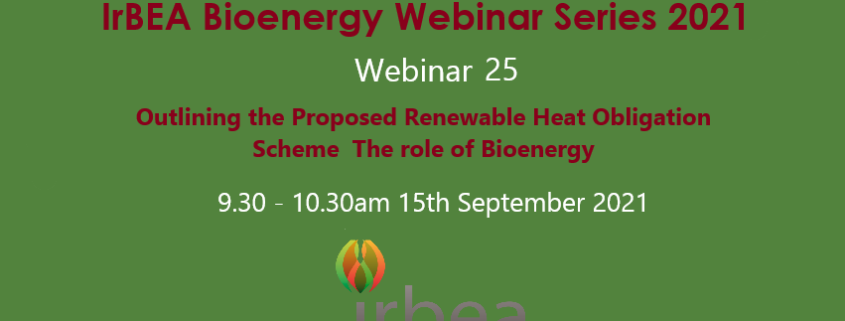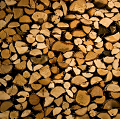PRESS RELEASE: CAP Strategic Plan must contain provision for Bioenergy measures – IrBEA
The Irish Bioenergy Association (IrBEA) highlighted in its recent consultation response, the need for the Common Agriculture Policy (CAP) Strategic Plan to contain provision for Bioenergy measures.
For Immediate Release: 22/09/2021
Seán Finan, CEO at IrBEA said “the Bioenergy sector has a significant role to play in addressing some of the key challenges and opportunities that farmers, foresters and the broader agricultural industry face. This should be recognised in the drafting of the Irish CAP Strategic Plan. Bioenergy has a considerable role to play in decarbonisation and the emissions reduction efforts of agriculture through development and mobilisation of energy crop, biomass and biogas industries. The sector can drive improvement in water quality through the use of biochar as a filter media. Biochar can also be used as a soil and slurry enhancer and animal feed additive. Biogas as a fuel can decarbonise heating and vehicles. Chemical fertiliser can be displaced with digestate from biogas production. Wood fuel production through the Wood Fuel Quality Assurance (WFQA) scheme is currently providing a market for thinning material as part of sustainable forest management.”
The CAP Strategic Plan should facilitate the development of various aspects of Bioenergy through the following measures:
European Innovation Partnership (EIP-AGRI) Operational Groups: Enhance, develop and increase the budgetary allocation from the current provision for the further growth of the European Innovation Partnership Project model. IrBEA is the lead partner on a current EIP project called the “Small Biogas Demonstration Programme” which is investigating the deployment of small scale biogas facilities on farms. This form of research and development is important to bring together a range of interested parties including farmers, technical specialists and researchers to find innovative and practical solutions to common issues at farm level.
Knowledge Transfer Programme: IrBEA would like to see flexibility within the design of the proposed Knowledge Transfer Programme to accommodate Bioenergy based focused Knowledge Transfer groups. These groups could comprise of farmers, foresters and technical advisors covering such area as: energy crops, wood fuels, biogas development and forestry etc.
On-farm Capital Investment Scheme: Consider broadening the proposed Capital Investment Scheme to potentially facilitate Forester, Farmers and Small and Medium Enterprises (SME’S) who would like to develop infrastructure such as drying sheds, chipping equipment and weighing equipment to process and mobilise wood fuels from the private forestry estate, biomass crops and energy crops.
Finan concluded “inclusion of provision for bioenergy in the CAP Strategic Plan measures would be a positive development for the sector. It would recognise the significant role that the bioenergy sector has to play in the decarbonisation and emissions reduction efforts of farming and the broader agriculture industry. We look forward to engaging with the Minister and Department of Agriculture, Food and the Marine officials to discuss the role of bioenergy in delivering on the overall CAP Strategic Plan objectives.”
ENDS
For Further Information Please contact Seán Finan IrBEA CEO on 0874146480





